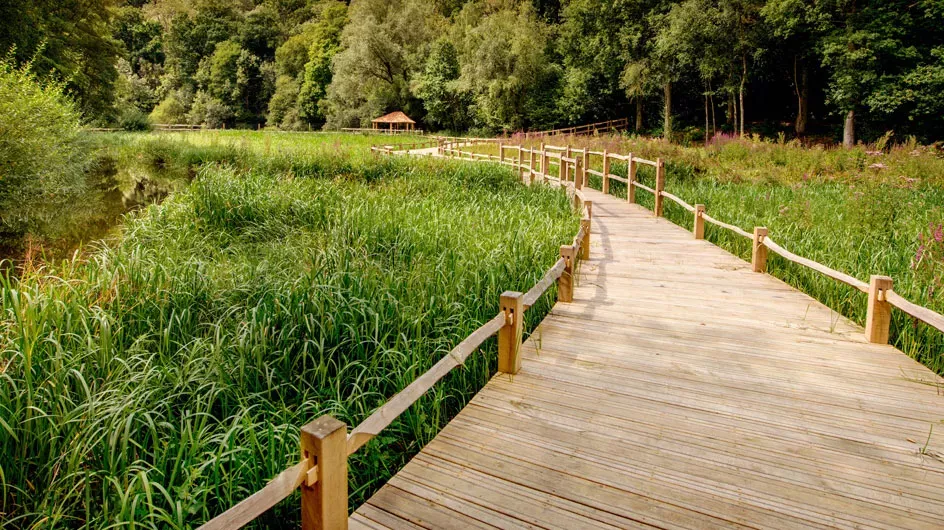KS5 Meadow investigation – biodiversity and conservation
Pupils explore conservation in action as they complete fieldwork in Wakehurst’s beautiful meadow lowland.

Level
Duration
Allocated space
Recommended dates
Pupils carry out fieldwork in a traditionally managed wildflower meadow. They investigate how abiotic factors affect the distribution and abundance of plant species growing there using interrupted belt transects.
They learn about the importance of species rich meadows and the strategies used to conserve biodiversity.
This session makes up a half day or part of a full day visit that is tailored to suit the needs of your group and is planned in detail with a Wakehurst teacher prior to the visit. One other workshop makes up a full day visit.
Learning outcomes
Educational visits at Wakehurst support and enhance the curriculum offered in schools and colleges. We aim to give pupils opportunities that are difficult or impossible to create in the school or college environment.
We design our sessions to match the learning outcomes in the national curriculum and exam board specifications.
This session offers pupils the opportunity to:
- Appreciate the diversity of living plants and animals in their natural habitat.
- Name some of the species in each habitat studied.
- Use a variety of equipment and techniques to carry out field work.
- Collect paired data for analysis.
- Consider the importance of lowland meadows for biodiversity conservation.
- Understand the process of succession and the need for management to maintain biodiversity.
Curriculum links
This KS5 visit supports and enhances the curriculum offered in schools and colleges.
A Level Biology
AQA
- 3.4.6 Biodiversity within a community
- 3.4.7 Investigating diversity
- 3.7.4 Populations in ecosystems
Edexcel A
- Topic 4: Biodiversity and Natural Resources
- Topic 5: on the Wild Side
Edexcel B
- Topic 3: Classification and Biodiversity
- Topic 10: Ecosystems
OCR A
- 4.2.1 Biodiversity
- 6.3.1. Ecosystems
OCR B
- 4.3.1 Photosynthesis, food production and management of the environment
IB Biology
- 4.1 Species, communities and ecosystems, in situ conservation
A Level environmental science
- 3.1.2 Conservation of Biodiversity
- 3.7.1 Research methods
- 3.7.2 Sampling Techniques
- 3.7.3 Opportunities for Skills development and independent thinking
BTEC
- Unit 3: Science Investigation Skills F1 factors that can affect plant growth and/or distribution F2 sampling techniques
